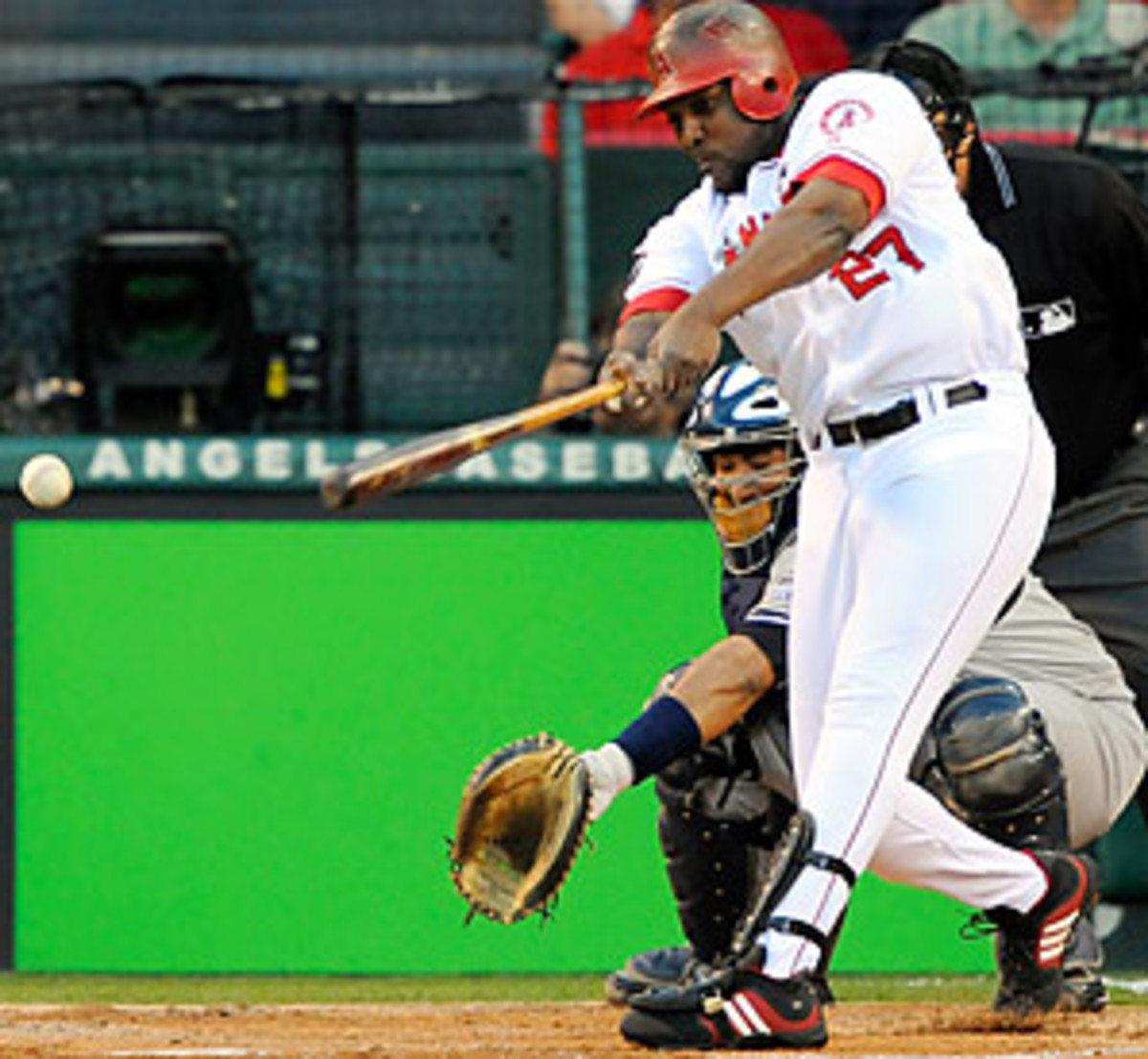Angels go on the attack in Game 5
During A.J. Burnett's first ALCS start, in last Saturday's Game 2 in the Bronx, it was clear, early on, that the Angels had decided to test his control by taking pitch after pitch, in the hope that Burnett would eventually fall into one of the wild spells that have bedeviled him throughout his career. Burnett responded by throwing first-pitch strikes to 13 of the first 15 batters, a task made easier by the fact that most of the Angels expressed little interest in swinging at those first pitches: 11 of the 15 kept their bats on their shoulders during Burnett's initial delivery. The strategy resulted in one hit, one walk and no runs during Game 2's first four innings.
After Wednesday's workout, Scioscia spoke of the importance of taking an early lead against Burnett in Game 5, and in the first inning it was immediately clear that Angels' hitters had completely altered their approach against him. After Chone Figgins drew a leadoff walk, Bobby Abreu, the league's preeminent count-worker, swung at Burnett's second offering and lined a double to center. Then Torii Hunter swung at the next pitch, a curveball, and singled up the middle, driving in Abreu. Then Vladimir Guerrero swung at the next pitch, a 95 mile-an-hour fastball, and doubled to center, driving in Hunter. Next, Kendry Morales showed unusual patience, for this inning: he didn't swing his bat until Burnett's third pitch, but he lined a single to left, driving in Guerrero.
Burnett, at that point, had thrown only 12 pitches, but the Angels already had four hits and a 4-0 lead. "They took a lot of pitches the first time I faced them," a somewhat shell-shocked Burnett said after the game. "This time they attacked. They made a good adjustment. They came back hacking."
Did the Angels sense, Hunter was asked, that Burnett had become so concerned with throwing first-pitch strikes that he had been locating those pitches over parts of the plate in which they were marginally easier to hit than usual? "Why would I tell you our strategy?" Hunter asked with a laugh. The change in strategy, Hunter was told, seemed clear enough to anyone who had watched both Game 2 and Game 5. "Last time we thought he would get behind, and he pounded the zone," Hunter said at last. "So we made an adjustment."
Burnett's own adjustment came four batters too late. After Morales' RBI single, he seemed to realize that the Angels would pound early-count pitches that, in the hope of accruing a few early-count strikes, might not have been thrown to his usual standard. Burnett yielded just three more hits until the bottom of the seventh, when he and Phil Hughes fell apart and allowed the Angels to take the lead -- a lead that, thanks to relievers Jered Weaver (who looked as dominant in pitching a perfect eight inning as he had looked hittable during his Game 3 start) and Fuentes, would hold up.
As the Yankees' equipment men loaded the club's still-dirty uniforms into red duffel bags for the team's flight back to New York, Derek Jeter made post-game comments that were as enlightening as they usually are. "We lost the game. That's about it," the Yankees captain said. "They played well. They looked better than us."
In reality, the Angels only looked better than the Yankees during the first 12 pitches of the game. But their clever approach to those 12 pitches is what put them on track to win, and it's the major reason why they remain alive in the ALCS.





